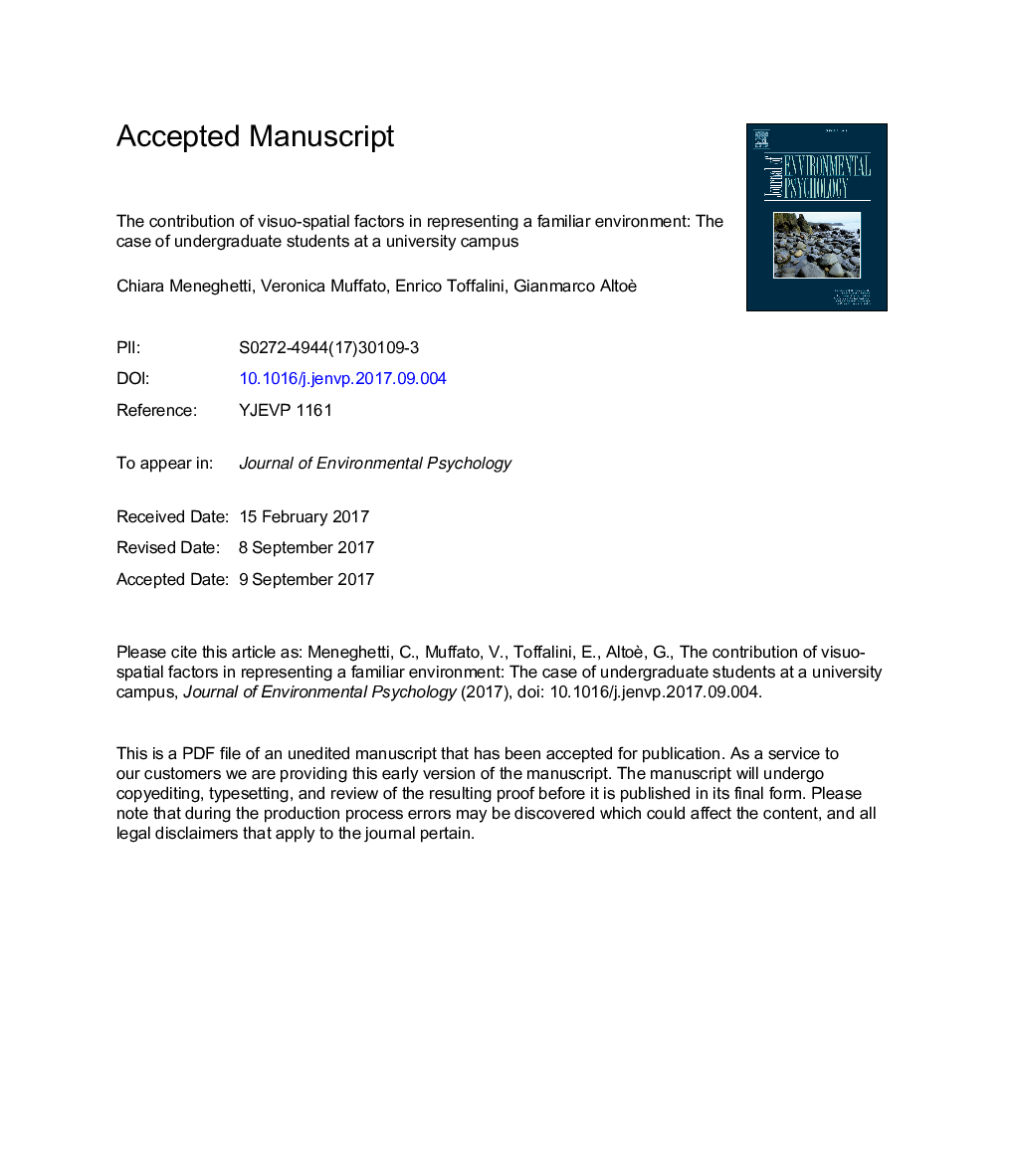| Article ID | Journal | Published Year | Pages | File Type |
|---|---|---|---|---|
| 7245342 | Journal of Environmental Psychology | 2017 | 28 Pages |
Abstract
Familiarity with an environment enables us to form elaborate mental representations, which also relate to individual visuo-spatial factors. This study examines how several individual cognitive and self-reported visuo-spatial factors contribute to people's knowledge of familiar environments. Undergraduates attending a university campus area for 12 months were administered visuo-spatial (mental rotation and visuo-spatial working memory) tasks, and tested on self-reported preferences, attitudes and strategy use in approaching an environment. Their environment knowledge was tested using location, path length judgment and pointing tasks. Regression modelling on environment knowledge factors (considering all recall tasks together) showed that visuo-spatial abilities and self-reported pleasure in exploring were associated with more accurate environment representations. Some differences emerged when single environment knowledge measures were considered. The contribution of individual visuo-spatial factors to knowledge of familiar environments is discussed from the spatial cognition standpoint.
Keywords
Related Topics
Social Sciences and Humanities
Psychology
Applied Psychology
Authors
Chiara Meneghetti, Veronica Muffato, Enrico Toffalini, Gianmarco Altoè,
